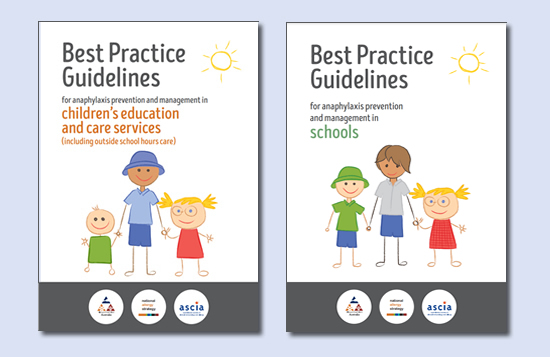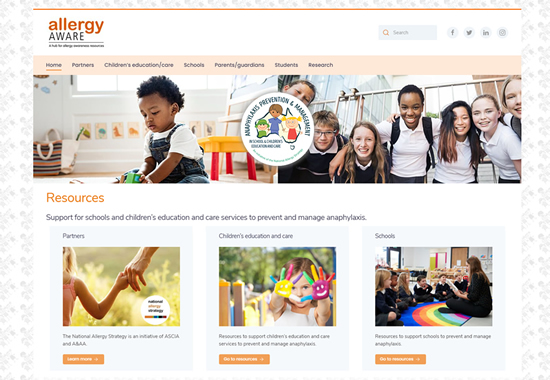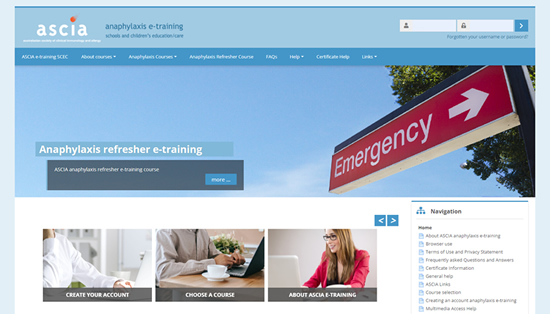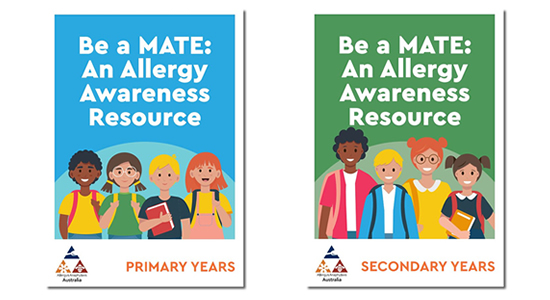7 October 2021
New best practice guidelines to protect children from severe allergic reactions in schools and childcare
The National Allergy Strategy has released Best practice guidelines for anaphylaxis prevention and management in schools and children’s education and care (CEC) services (Guidelines). The Guidelines have been developed through extensive consultation with key stakeholder organisations, staff working in schools and CEC services, and parents/guardians of children attending schools and CEC services. They have been developed to provide consistent, evidence-based, best practice guidance for staff in school and CEC services, and parents. The Guidelines and associated supporting resources will reduce the risk of anaphylaxis in schools and CEC services while supporting children to participate in the full range of activities.

To help schools and CEC services to meet the recommendations of the Guidelines, several supporting resources have been created. The supporting resources are designed to help schools and CEC services consider site specific issues relating to anaphylaxis prevention and management and put into place appropriate strategies to allow children at risk of anaphylaxis to safely participate fully in school and CEC service activities.
The Guidelines and supporting resources can be downloaded for free from a new school and CEC service resource hub released today by the National Allergy Strategy. The Guidelines promote an ‘Allergy aware’ approach to managing anaphylaxis, hence an ‘Allergy Aware resource hub’ has been created – www.allergyaware.org.au

Along with the new National Allergy Strategy resources, the Allergy Aware resource hub also hosts links to national and state and territory existing legislation, procedures and guidelines which schools and CEC services are required to be compliant with. Allergy & Anaphylaxis Australia (A&AA) and the Australasian Society of Clinical Immunology and Allergy (ASCIA) have been working with schools and CEC services for many years to provide education, training and support around anaphylaxis management. As partners through the National Allergy Strategy, the Allergy Aware resource hub has links to all the relevant A&AA and ASCIA resources in one easy to access location.
As part of the National Allergy Strategy School and CEC project, the National Allergy Strategy has supported a recent update to the ASCIA anaphylaxis e-training for schools and CEC and the development of a new ASCIA anaphylaxis refresher e-training course. These courses are consistent with and support the recommendations within the Guidelines regarding staff training. They are also available free of charge.

The Guidelines recommend schools provide age-appropriate education of students with allergies and their peers. The National Allergy Strategy has supported the update of the A&AA allergy awareness curriculum resources to align with the guideline recommendations and the new national curriculum. Curriculum resources for both primary and secondary schools are available free of charge for schools to use.

Other important resources developed through this project and released earlier this year are the ‘How to position a child or adult having a severe allergic reaction (anaphylaxis)’ and ‘How to safely remove a tick’ animations.

The National Allergy Strategy would like to thank the National Allergy Strategy Co-chairs and Project Co-leads who helped to guide this project. We would also like to thank the many stakeholders, school and CEC service staff and parents/guardians who have engaged with the National Allergy Strategy to help develop the Guidelines and supporting resources.
We look forward to continuing to work with the school and CEC sectors, policy makers and parents/guardians to support the implementation of the best practice guidelines.
Stay informed about the National Allergy Strategy
Follow us on Facebook, LinkedIn, Instagram and Twitter to stay informed or visit the National Allergy Strategy website: nationalallergystrategy.org.au
Further information
Contact the National Allergy Strategy for further information:

